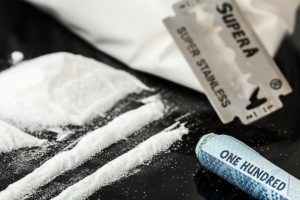The Strong Defense
You Deserve
Don’t Get Caught In Federal Drug Trafficking Laws!

Drug trafficking is a serious offense in Florida. Both Florida and Federal laws prohibit drug trafficking, so an arrest for it in Florida could result in multiple charges by both jurisdictions. Following is what you need to know about drug trafficking and the Florida and Federal laws surrounding it.
Basics
In general, drug trafficking is more than just possessing a small quantity of drugs. Drug trafficking is selling, importing, or transporting illicit drugs and usually involves more than what may be considered a “personal” amount of illegal drugs.
Drug Scheduling
Among the more commonly trafficked drugs in Florida are
- Cocaine,
- heroin,
- marijuana/cannabis,
- methamphetamines,
- fentanyl
All of these drugs are considered “controlled substances” and appear on one of five schedules under the federal Controlled Substances Act. Briefly, the schedules are as follows:
- Schedule I – the drug is highly addictive, has no recognized medical use, and is not safe to use even under medical supervision
- Schedule II – the drug is highly addictive but has a recognized medical use, but it still may be prone to abuse due to its addictive potential
- Schedule III – the drug has a low potential for abuse and has recognized medical uses, but the risk of abuse and addiction is moderate
- Schedules IV and V – drugs on these lists have a low potential for abuse and have recognized medical uses, and the risk of addiction is not significant
Federal Drug Trafficking Penalties
The sentences available for defendants convicted of federal drug trafficking charges vary widely. Many factors are taken into account by the court, including the amount they were trafficking, whether they were close to a school when trafficking the drugs, if they were armed when trafficking the drugs, and if they committed murder in the course of trafficking the drugs. Previous convictions are also considered when sentenced in the federal system on a conviction of drug trafficking.
Regardless of the situation, a conviction on federal drug trafficking laws is always a felony and typically leads to prison time. If a firearm is involved, the sentence for possessing a firearm unlawfully is run consecutively with the drug conviction, not concurrently. In other words, the sentence for one conviction is tacked onto the end of the sentence for the other conviction. Also, as there is no parole in the federal system, a 40-year prison sentence for drug trafficking means that, save for an overturned conviction, the defendant will serve all 40 years of that sentence.
Florida Drug Trafficking Sentences
In Florida, drug trafficking is a first degree felony, but it comes with a range of possible penalties. State judges also take into account the nature and quantity of the drugs the defendant is charged with trafficking and whether he or she was armed or murdered someone else in the process.
If the conviction is for possession with an intent to sell, the conviction is a third degree felony and could yield a prison sentence of up to five years and a fine of up to $5,000. Additionally, if the defendant has prior felony convictions, they may be sentenced as “career criminals,” which could lengthen the sentence.


